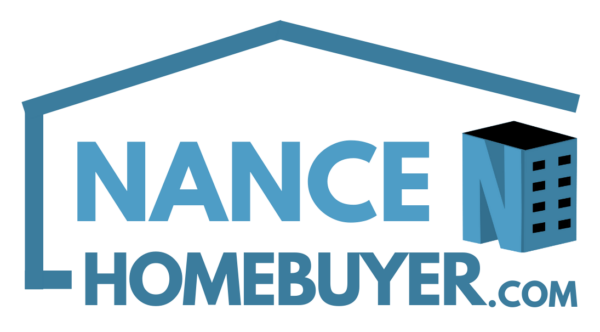
While selling your house in Georgia for the first time without a realtor can be daunting, you will save money on commissions. To what extent somebody is willing to go is entirely a matter of one’s interests. We will use easy-to-use language to help comprehend every step of the process through which the selling and listing of a house can be done. For Discussion purposes, the property selling procedures, pricing, marketing, selling, and negotiation tactics will be examined, along with the accompanying legal formalities. This will be done concerning the real estate process and the procedures in the state of Georgia. Georgia is known as the Peach State, and its homeowners can efficiently market and sell their houses without assistance.
Pros and Cons of Selling Your House Without a Realtor in Georgia
Navigating the sale of your Georgia home without a realtor or real estate agent is becoming an increasingly popular choice among homeowners who want more control over the process and the opportunity to maximize their profits. Selling your property “For Sale By Owner” (FSBO) saves on commission costs- around 5% to 6% of the sale price- and transaction costs, which maintain more of your equity. More than the economic edge, FSBO also lets sellers control the pace of the transaction, deal directly with buyers, and present the home using their customized marketing strategy.
Like any other method, selling a house without a realtor is difficult. Hesing a realtor means you have the additional burden of having accurate valuations on the property and also managing the more complex aspects of marketing the property. You would also have to deal with client paperwork on a legal and financial level, which deals with contracts, disclosures, and negotiations. Failing to comply with these legal processes may also violate the Georgia real estate framework. Other real estate sellers may have to invest a lot of time to hire professionals to do legal documentation, review, and take pictures of the property.
A contemplation of the advantages and challenges of FSBO is most important before deciding to make an FSBO sale. One might indeed save and, of course, work independently. Still, the most critical factor is whether one is prepared and confident enough to take the effort to assess the process thoroughly, comprehend, and examine all the details with precision. With mindful consideration, these individuals can evaluate whether the self-guided approach serves them best and then ascertain the best approach. Georgia homeowners with these attributes can take the proper measures for hassle-free, easy, and valuable home selling.
Key Trends Affecting House Prices and Demand in Georgia
The Georgia real estate market is highly competitive, fueled by population growth, job opportunities, and a desirable lifestyle. Median home prices continue to rise in cities like Atlanta, Savannah, and Athens, with limited inventory driving demand. Sellers who price competitively, prepare their property well, and use for-sale-by-owner strategies can benefit from these conditions.
In the spring and early summer, most markets start to close on deals, and buyer activity is at its peak, while other seasons tend to lag in sales momentum. Conversely, technology has provided direct access through independent selling and buying via/virtual tours, professional photography, and other online marketing tools over the web.
Interest rates and employment trends influence buyer demand. On the contrary, higher interest rates tend to cool competition and the market, affecting seller expectations. In contrast, remote work is a game-changer, making customers look for properties with office space and amenities in different locations.
Unsatisfied Georgia home sellers lacking the assistance of realtors must remain apprised of pricing, demand, market trends, digital instrumentation, and insightful buyers to maximize value and attain profitable sale attainment.
Looking to sell your Georgia home in today’s competitive market? Contact us today for a personalized offer and take advantage of rising demand, innovative pricing strategies, and the power of direct-to-buyer marketing.
Potential Savings and Challenges for Independent Sellers
Selling your house in Georgia without a realtor can save thousands, as agent commissions typically run 5–6% of the sale price. On a $350,000 home, that’s up to $21,000 in potential savings. Many FSBO (“For Sale By Owner”) sellers use flat fee MLS packages to gain broad market exposure without paying full commission, keeping more equity at closing.
Additional responsibilities stem from these savings. A seller has to fulfill the duties of assigning a listing price, marketing, real estate showings, buyer negotiations, and managing all paperwork and disclosures. Marketing the property and managing the paperwork without professional help is risky, especially regarding price setting, contract signing, and negotiations. One is guaranteed to run into a dense profit-loss tunnel efficiently.
Selling property yourself can generate profit if the seller is confident and willing to invest the time and energy to learn the real estate policies in Georgia. This also applies to selling shares of your home, where understanding the process and regulations is just as important. Ultimately, it comes down to whether you want to deal with all the cumbersome tasks and save money on agent fees.
Essential Paperwork for Selling a House by Owner in Georgia
When you decide to sell your house in Georgia without the help of a real estate agent, understanding the Paperwork for selling a House by Owner becomes critical to a smooth transaction. Selling “For Sale By Owner” (FSBO) places you in charge of every document licensed real estate agents typically manage. This includes a range of forms, disclosures, and contracts that protect you and the buyer while ensuring compliance with Georgia real estate laws.
From the beginning, the paperwork sets the foundation for a legally sound deal. The property disclosure statement informs buyers about the actual condition of your home, while contracts such as the purchase and sale agreement outline the terms of the transaction in detail. Additional documents—like lead-based paint disclosures, title records, homeowners’ association forms, and closing statements—may also be required depending on the specifics of your property.
Ignoring these materials will lead you to make blunders, damage your reputation, and cause your buyers to lose faith in you because you do not transparently handle transactions. This summary provides the fundamental documents you will need, the necessities of Georgia state law, and actionable advice to help you fill, prepare, and confidently close these forms. You can manage your closing and Georgia home sale returns without paying agents’ fees as long as you have these documents.
Nance Homebuyer provides Georgia home sellers with the necessary paperwork and guidance to smoothly complete a For Sale By Owner (FSBO) transaction. From disclosure forms to purchase agreements, we ensure you have the correct documents to protect your sale, stay compliant with Georgia law, and confidently close—without paying costly agent commissions.
State Forms, Disclosures, and Contracts Needed to Sell
Selling a house in Georgia without a real estate agent means handling all the required forms, contracts, and disclosures yourself. Missing or incomplete paperwork can delay or derail the sale, so it’s essential to know what’s needed.
The most crucial document is the Georgia property disclosure form, which outlines the home’s condition and any known defects. Honest disclosure protects you from legal disputes and builds buyer trust.
You’ll also need a purchase agreement, which sets both parties’ price, contingencies, timelines, and responsibilities. Using clear, state-specific forms helps avoid disputes. Other standard documents include the lead-based paint disclosure (for homes built before 1978), closing disclosure statements, the deed, HOA records, repair histories, and transferable warranties.
Even though the Georgia law does not require it, you may need an attorney at closing, as most FSBO sellers do employ an attorney to review the documents to verify whether there is compliance with the rules. ‘Being systematic, utilizing the appropriate forms, and record retention minimizes the chance of loss, and demonstrates acceptable professionalism.’
An increased estimate of ancillary legal and procedural burdens that Georgia FSBO sellers can alleviate through effective MSO is available.
Attracting a Cash Buyer When Selling a House in Georgia

Identifying a cash buyer is one of the fastest ways to sell a house in Georgia, especially when doing so without an estate agent or realtor. Cash buyers can be approached through a focused methodology that combines marketing, direct contact with investors, and a well-designed appeal.
The speed of the purchase, the investment opportunity, and the ease of the process, which does not involve traditional financing, usually attract them. You must highlight your home’s best features and price it to sell. Knowing what works in marketing one’s home and what is needed to stand out in Georgia’s highly competitive real estate market is the key to a hassle-free, quick sale, attracting buyers, and maximizing profit.
Employing FSBO tactics, leveraging MLS listing strategies, and fostering direct connections with investors and serious buyers can set your house apart, ultimately creating the conditions for a fast and reliable cash closing.
Tips for Marketing Directly to Investors and Fast Closers
To sell your home fast in Georgia, focus your marketing on cash buyers and real estate investors. The buyers appreciate speed, unambiguous conditions, and facilitation of the activity. Focus your MLS and FSBO listings around phrases like cash accepted, motivated seller, and quick closing available. Also, mention selling features such as a clear title, flexible showings, and immediate sales readiness.
Enhance standard exposure by participating in local Georgia investor groups, both online and in-person. Share your property with photos, emphasizing a cash, as-is discount, and provide direct contact information. Ponding visuals and videos also strengthen the prominence of your listings.
Implement targeted digital marketing tactics at Facebook Marketplace, Craigslist, and other specialized Georgia sites, along with direct mail or investor outreach campaigns. Always use the phrases “cash-only offers,” “FSBO,” “no agent commissions,” etc., to attract motivated prospects. Be forthcoming with disclosures, paperwork, etc., to foster trust and position yourself as ready for a fast closing with title status.
Lastly, price reasonably. Slight price reductions or flexible terms with a scheduled closing can quickly draw serious attention to the buyers, resulting in rapid offers. With the right messaging, strong images, and smart pricing, you can easily get an investor’s attention and sell your Georgia property quickly, minus the agent fees.
Preparing Your House for Sale Without a Real Estate Agent
Suppose you decide to sell your home on your own and subsequently decide to do so in Georgia. In that case, you have to take into consideration your repairs and the home’s condition and how those factors will influence the home’s sale price, as well as the home’s overall sale. The seller also individually takes care of repairs, home staging, and home photography, so that the home sitting on the multiple listing service will not be neglected like those labeled for sale by owner.
Start with repairs—fix leaky faucets, update to modern fixtures, and retouch paint and flooring. No one expects complete remodels, but having a clean, functional, and well-maintained property will foster buyer confidence.
Subsequently, space management is key. Use neutral color palettes, decluttered arrangements, and intentional decorative accents that create an inviting environment while allowing the buyer to envision themselves in the space more easily.
Next, spend on professional photography. With the majority of buyers exploring the internet, proper images are critical to promoting the house’s best features, preparing the home for showings, and garnering offers. With appropriate investments, practical enhancements, and proper presentation, FSBO sellers in Georgia have many residential options and can attain the same or higher sale prices.
Staging, Photography, and Repairs That Add Value
Selling your home in Georgia without a real estate agent depends on how well you prepare your property. Today’s buyers expect more than a listing—they want a memorable experience. Repairs, virtual staging, and the enhancement of real estate virtual tours increase the salability of your home and allow it to compete with agent-listed properties. Since most buyers start their searches online, the home’s online presence and first impressions are essential.
Start with repairs that add value and assure buyers (this includes repairing leaky faucets and replacing major system components). All over or almost everywhere in the house, keep the receipts and the repairs that can effortlessly claim proof of maintenance on hand. Next, stage the home to feel bright, spacious, and inviting. Declutter, emphasize primary features, and design flexible layouts that cater to families, investors, and remote workers.
Equally important is professional photography. Using specialists allows for professional images that significantly increase visibility and sales velocity. Bad lighting and blurry pictures can submerge one’s listing within an overcrowded sea of competition with alarming speed.
Repairs, staging, and photography build confidence in FSBO sellers and give them practical marketing tools. Impeccable order and neat presentation reflect one’s ability to control the transaction. If executed properly, these steps increase the value of the subject, diminish time on the market, and maximally retain the profit to oneself all at once.
How to List Your Property on a Fee MLS in Georgia

The ability to sell your house in Georgia without a real estate agent rests on the seller’s ability to maximize visibility. For strategic advantage, real estate is listed in a flat-fee MLS, which is provided to independent sellers and does not conform to real estate commission schedules. Realtors and buyers have some access to these listings, and therefore, real estate sellers can avoid the traditional commission structures real estate brokers use.
Most sellers never pay agent commission. In this case, the seller’s commission, which is relayed as a percentage of the sale, is reclassified. All agents pay a one-time fee to sell the house. Agents and top brokers are commended for the effectiveness of their listings. The sit clients ensure their home is listed in the MLS, Multiple Listing Service, which is the prominent core of multiple real estate.
In addition to the credibility and professional exposure to FSBO sales that flat fee MLS listings provide, as well as the cost savings flat fee MLS listings offer, they make a property more competitive in the ever-moving housing market in Georgia. This balance provides cost effectiveness while giving homeowners control over the selling process and still having access to visibility, ensuring speed and successful closings. Exploring the advantages of these services explains why many property owners in Georgia consider flat fee MLS listings to ease the sales process, expand market access, and preserve considerable equity from the final sale.
Benefits of Flat Fee Services for Maximizing Exposure
Selling a home in Georgia without an agent can be cost-effective with a flat-fee MLS service. Instead of paying the typical 5–6% commission—thousands on a $350,000 home—sellers pay a one-time, transparent fee to list directly on the MLS, the same platform agents use. This maximizes exposure by syndicating your listing to major sites like Zillow, Realtor.com, and Redfin, reaching buyers and agents statewide.
Flat fee MLS gives FSBO sellers control over pricing, showings, and negotiations while keeping more equity at closing. Most services cost only a few hundred dollars and offer optional add-ons like professional photos or paperwork support. For motivated Georgia homeowners, this hybrid approach combines a broad market reach with significant savings, making sales faster, more flexible, and more profitable.
Legal and Regulatory Steps for Home Sellers in Georgia
Selling a house in Georgia without a real estate agent requires a solid grasp of the legal and regulatory requirements that ensure your sale is valid, secure, and enforceable. Independent sellers must carefully handle paperwork, disclosures, and contract forms specific to the Georgia market. Unlike sellers who rely on agents, you must manage every detail yourself—from drafting the purchase and sale agreement to addressing contingencies.
One of the most critical areas is seller disclosure. Georgia law requires sellers to disclose known material defects, such as roof, foundation, plumbing, electrical, or pest issues. Failure to do so can lead to disputes after closing, so accurate documentation is essential.
Contracts are equally important. Georgia uses standardized forms, like the Georgia Association of Realtors (GAR) contracts, which cover purchase price, financing, earnest money, inspections, and closing timelines. Contracts must comply with state law to be enforceable, even if you draft them. Many sellers hire a real estate attorney to review documents and protect their interests.
Title and closing requirements also matter. Sellers must provide a clear, marketable title free of liens, and a licensed attorney typically handles closings in Georgia. Coordinating with the closing attorney ensures proper fund distribution, deed recording, and full compliance with state law.
You reduce liability and build buyer confidence by staying proactive with disclosures, contracts, and closing procedures. Many FSBO sales succeed when sellers demonstrate professionalism and transparency, proving the process can work smoothly without an agent.
Closing Requirements for an FSBO Sale in Georgia
Selling a house in Georgia independently requires careful attention to the closing process, where ownership officially transfers. Without an agent, you’re fully responsible for ensuring contracts, disclosures, and paperwork meet state standards. Errors or missing documents can cause costly delays—or even legal disputes.
A strong purchase and sale agreement is the foundation, outlining contingencies, disclosures, deadlines, and financial terms. Georgia-approved templates are available, but tailoring them to your property is essential.
FSBO sellers should also prepare for fees beyond commission savings, such as attorney review, title insurance, transfer taxes, HOA charges, and prorated property taxes. While Georgia doesn’t require an attorney at closing, many sellers hire one to prevent last-minute issues.
Stay organized with a checklist of required documents—contract, disclosures, closing statements, deed, and receipts for repairs or prepaid fees. On closing day, ensure all forms are signed, contingencies are satisfied, and payments are settled so the transfer proceeds smoothly.
Negotiating Offers Without a Realtor: Strategies for Georgia Sellers

Navigating offers without a realtor requires Georgia sellers to sharpen their negotiating skills and gain a clear grasp of buyer motivations, especially when working with cash home buyers in Newnan and surrounding cities in Georgia. Without the guidance of a real estate agent, the seller becomes the decision-maker at every stage—reviewing proposals, weighing contingencies, and setting the tone for counteroffers. This means understanding the numbers on the page and the intentions behind them, such as whether a buyer values quick closing, seller concessions, or repair credits.
Managing offers independently also involves controlling the pace of negotiations. Sellers must decide when to respond quickly to maintain buyer interest or to wait strategically to attract competing bids. The ability to craft counteroffers that balance firmness with flexibility can significantly impact the final sale price. Properly handling the paperwork, disclosures, and MLS visibility ensures the process stays compliant with Georgia’s real estate standards while keeping the home attractive to serious buyers.
By mastering these FSBO strategies, independent sellers position themselves to maximize value, keep a larger share of their proceeds, and close on terms that reflect their priorities, all while maintaining complete control of the transaction.
Evaluating Buyer Proposals and Counteroffer Tactics
For Georgia sellers listing their homes without a realtor, evaluating buyer proposals and crafting strong counteroffers is central to the FSBO process. Without an agent, sellers must carefully review offers—price, concessions, financing, and contingencies—against market conditions and their own priorities. Using MLS comparables helps ground counteroffers in data rather than emotion.
When offers include excessive repair requests or closing cost contributions, negotiate selectively—agreeing to reasonable fixes while holding firm on terms that reduce net proceeds. Pay close attention to contingencies, as clauses tied to financing, appraisals, or the buyer’s home sale can add risk. Countering with shorter timelines or non-refundable earnest money can keep negotiations on track. Sellers should also understand when they typically pay the closing costs, as timing can affect net proceeds and the final settlement.
Accuracy in paperwork is critical. To avoid disputes, every adjustment must be documented using Georgia real estate contract forms. Sellers may consult a real estate attorney for contract review without giving up FSBO status.
Timing matters: respond to offers within 24–48 hours to maintain momentum, and when multiple offers arise, invite “highest and best” submissions to spark competition. Direct, professional communication with buyers can strengthen negotiations, provided every agreement is documented.
By mastering these tactics, Georgia FSBO sellers keep control, protect their interests, and maximize sale outcomes while saving on agent fees.
Comparing Costs and Outcomes for Georgia Homeowners
Cost is one of the first factors Georgia homeowners weigh when selling a property: pay a flat fee for an MLS listing or the traditional 5–6% agent commission. On a $350,000 home, that commission means $17,500–$21,000 out of pocket, while flat fee MLS services may cost only a few hundred dollars for the same listing visibility.
Flat fee MLS is beautiful for FSBO sellers. You pay once for the listing and keep more equity, though you must handle showings, negotiations, and paperwork yourself. Optional add-ons like marketing or legal support can help, but the workload largely falls on the seller.
By contrast, commission-based agents provide full-service support—pricing, staging, marketing, and negotiation—potentially leading to smoother transactions or higher sales. The trade-off is the significant cost.
Exposure also differs: Flat-fee MLS ensures your home appears on the same platforms agents use, but traditional agents add personal networks, marketing, and outreach, which is especially valuable for unique or luxury homes.
Ultimately, the choice depends on how much control and involvement you want. Flat fee MLS saves money and gives independence, while traditional agents reduce effort but take a larger share of proceeds.
Avoiding Legal Pitfalls when Selling a House Without a Realtor in Georgia
Disclosure is one of Georgia’s most critical legal obligations in home sales. Sellers must provide a comprehensive property disclosure statement documenting any known issues, repairs, or defects with the house and land. Whether intentional or accidental, misrepresentation can result in legal challenges long after the sale. Additional requirements include federal lead-based paint disclosures for homes built before 1978, HOA documents, significant repairs or upgrades records, and clarification on the time when a seller can stay in the house after closing. Every form should be retained and organized in the transaction paperwork package.
Failure to double-check contracts and disclosures for accuracy may expose sellers to challenges at closing or future disputes about the terms of the sale. Even briefly consulting a knowledgeable third party, such as a real estate attorney, can reinforce compliance and reduce the stress of self-managing every detail.
Many experienced Georgia home sellers recognize that closing is more than just collecting a check—it’s the culmination of contracts, disclosures, and regulatory steps. By proactively learning state forms, double-checking every agreement, and understanding closing procedures, you minimize legal risks and confidently close the sale. This diligence protects your interests and reassures your buyer, making your property stand out in the Georgia real estate market as a fully compliant, hassle-free FSBO home.
Do you want to sell your home? This page is for you if you want to escape expensive repairs or a quick sale. Nance Homebuyer is here to help. We make fair cash offers, care for all the details, and simplify the process. Do you want to sell or have a question? For a deal that doesn’t bind you, call us at +17707582729. Start right away!
Helpful Georgia Blog Articles
- Fixing Up a House to Sell in Georgia
- Selling Your House with Tenants in Georgia
- Selling a House During Divorce in Georgia
- How to Sell a House Without a Realtor in Georgia
- Does a Seller Pay Closing Costs in Georgia?
- Capital Gains Tax After Selling a House in Georgia
- I Inherited a House in Georgia Now What?
- Selling Shares of Your Home in Georgia
- How Long to Live in a House Before Selling in Georgia
- How To Sell A House With A Mortgage In Georgia

